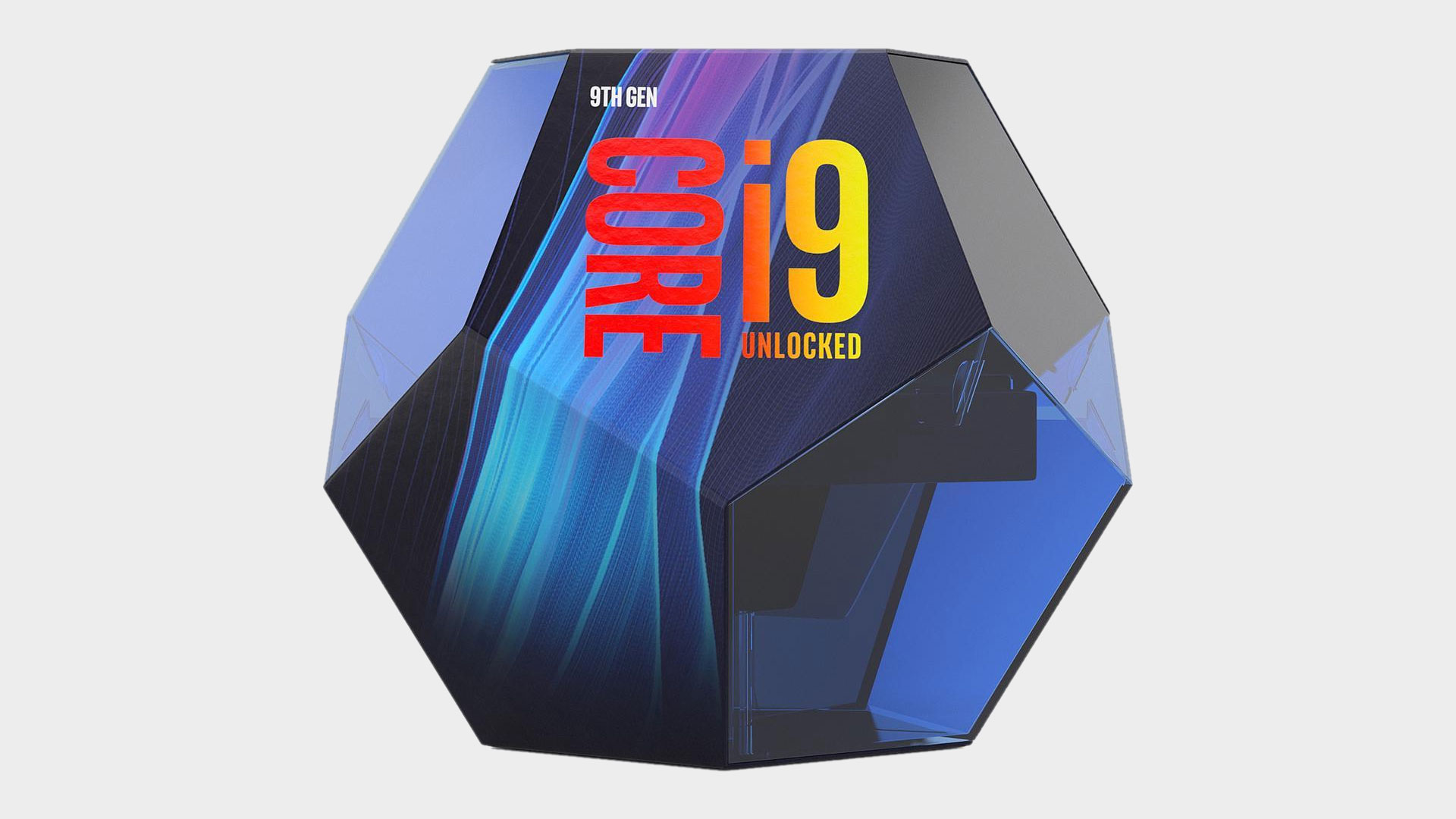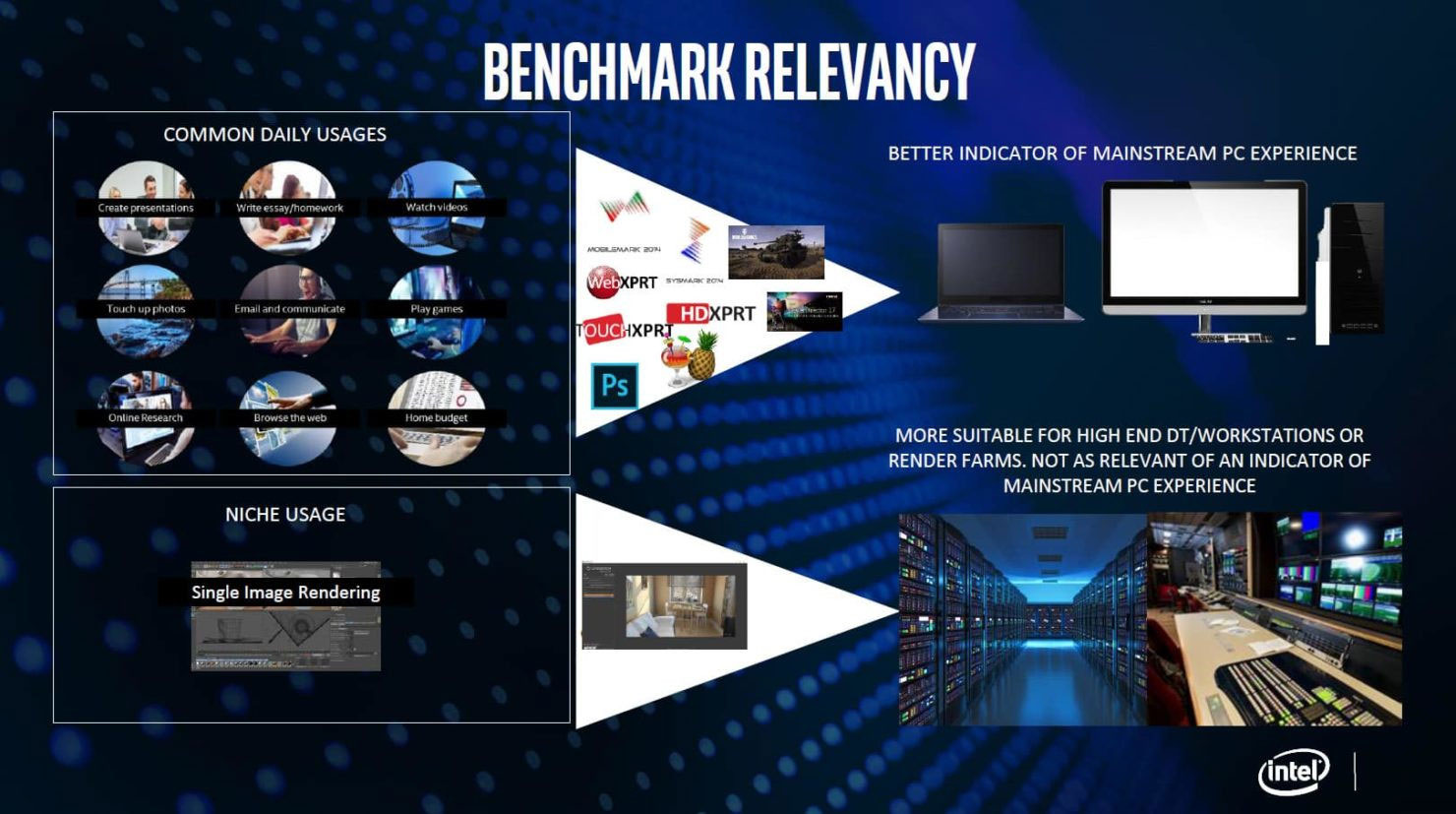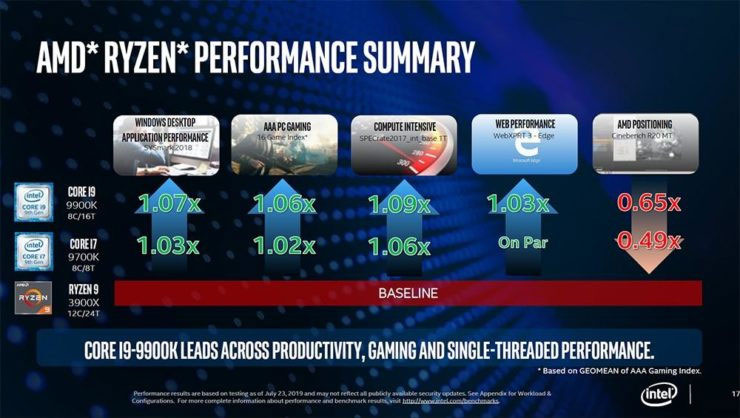Intel pats AMD on the back for 'closing the gap' but says its CPUs are still best for gaming
As far as Intel is concerned, the Core i9-9900K is still the best CPU for the money.

AMD has earned a bunch of kudos for its third-generation Ryzen processors, and even Intel has extended a bit praise to the company. However, Intel's recent positive assessment of AMD comes with a caveat. Intel still makes the best CPUs for gaming, according to the chipmaker.
"A year ago when we introduced the i9-9900K, it was dubbed the fastest gaming CPU in the world. And I can honestly say nothing's changed. It's still the fastest gaming CPU in the world," Intel's Troy Severson said at Gamescom. "I think you’ve heard a lot of press from the competition recently, but when we go out and actually do the real-world testing, not the synthetic benchmarks, but doing real-world testing of how these games perform on our platform, we stack the 9900K against the Ryzen 9 3900X. They’re running a 12-core part and we’re running an 8-core."
Both the Core i9-9900K and Ryzen 9 3900X cost around $500, so it's fair to compare the two against one another. In our own testing, we found the 9900K to indeed be faster in gaming, as Intel suggests, but "it really only matters if you're running at 1080p ultra with an RTX 2080 Ti." Cranking up the resolution and/or dropping down to a slower GPU shrinks the gap.
"AMD loses in absolute gaming performance, again, but not by much... the other side of the coin is non-gaming performance, and here AMD makes some massive inroads against Intel," Jarred noted in his review of the Ryzen 9 3900X and Ryzen 7 3700X.
In our testing, it wasn't even close when comparing multithreaded performance. AMD's 3900X is around 21 percent faster than Intel's 9900K. So for around the same money (AMD's CPU comes with a cooler and Intel's does not, by the way), the Ryzen part offers comparable gaming performance and much better multithreaded performance.
Case closed, right? Well, not according to Intel, which is crying foul over benchmark relevancy. In a presentation on the topic, one of the slides is titled "Benchmark Relevancy." Have a look:

Intel is basically throwing shade at Cinebench as a relevant benchmark for the typical user. Intel much prefers SYSmark, a benchmark that historically favored Intel silicon, on the basis that it uses real applications that are more widely used, such as Word and Excel.
Keep up to date with the most important stories and the best deals, as picked by the PC Gamer team.

What about those positive remarks Intel had for AMD?
"So, again, you are hearing a lot of stuff from our competition. I’ll be very honest, very blunt, say, hey, they’ve done a great job closing the gap, but we still have the highest performing CPUs in the industry for gaming, and we’re going to maintain that edge," Severson added.
Not surprisingly, Severson did not get into the value proposition of spending $500 on a CPU. Intel is on the defensive, and with good reason—AMD's third-gen Ryzen lineup is compelling. This extends to the chipset level as well, with X570 motherboards supporting PCI Express 4.0, paving the way for incredibly fast solid state drives.
Now, there's nothing wrong with building a system around Intel silicon, especially if high-end gaming is the sole focus. But what is wrong is to say that "nothing's changed."
Paul has been playing PC games and raking his knuckles on computer hardware since the Commodore 64. He does not have any tattoos, but thinks it would be cool to get one that reads LOAD"*",8,1. In his off time, he rides motorcycles and wrestles alligators (only one of those is true).


